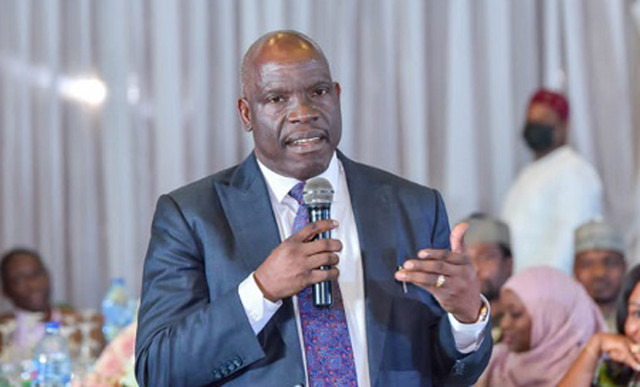The Nigerian Upstream Petroleum Regulatory Commission (NUPRC) has reduced the maximum bonuses payable to awardees in the 2022 and 2024 bid rounds to $10 million for deepwater assets and $7 million for shallow water and onshore assets.
This decision was approved by President Bola Tinubu, who also serves as the minister of petroleum.
The Assistant Director of Multiclient Surveys/Regional Studies at NUPRC, Mr. Ahmad Abdullahi, announced this during the Pre-bid Conference for the 2024 Oil Licensing Round in Lagos.
The Chief Executive Officer of the Commission, Mr. Gbenga Komolafe, revealed that more blocks have been added to the 12 being auctioned, with details to be posted on the designated bid exercise portal later.
Komolafe also refuted recent claims by TotalEnergies' global CEO, Patrick Pouyanne, regarding the lack of talent in Nigeria, stating that the country's talents contribute to the profitability of International Oil Companies (IOCs) operating there.
He also mentioned that the commission, in collaboration with its multi-client partners, has acquired additional geological data which has led to the identification of more prospective blocks.
He mentioned that the newly identified blocks would be included in the pool of blocks originally planned for the bid exercise, and their details would be accessible on the bid round portal.
Furthermore, he stated that in addition to these blocks, the seven deep offshore blocks from the 2022 Mini-Bid Round Exercise covering an area of approximately 6,700 km2 in water depths of 1,150m to 3,100m would also be concluded in this Licensing round.
To ensure a smooth Licensing Round exercise, he emphasized that the NUPRC, in partnership with the National Data Repository and multi-client partners, ensures access to comprehensive and high-quality geological data, enabling well-informed decision-making and strategic investments.
He reassured industry players and investors at the conference that the licensing round was anticipated to be a significant success for Nigeria and a major step towards increasing the nation’s oil and gas reserves.
He highlighted that this would be achieved through aggressive exploration and development efforts, enhancing production, creating opportunities for gas utilization, and comprehensive development across the value chain.
Additionally, he stated that the exercise aimed to strengthen Nigeria’s energy security and economy, providing an opportunity to engage competent companies in the oil and gas sector with a multiplier effect on employment opportunities, technology transfer, value optimization from petroleum assets, and attracting investments.
On a global scale, he expressed that the licensing round would benefit all stakeholders and ultimately contribute to long-term global energy sufficiency.
Komolafe elaborated that the oil and gas industry in Nigeria is acknowledging the reality of energy transition and strategically positioning itself to capitalize on the opportunities presented by the evolving era.
However, he also noted that recent global events indicate that fossil fuels will remain a fundamental part of the energy landscape.




















